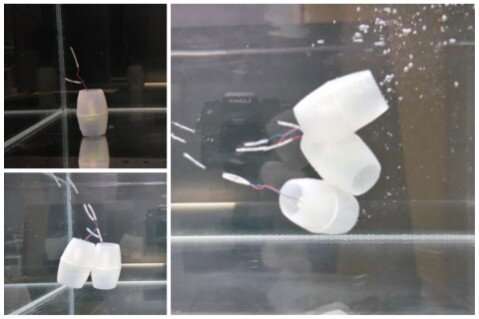Researchers have developed a jellyfish inspired robot which can efficiently be used for extra-terrestrial exploration missions.

In this vast galaxy and many more, there are planets similar to our own and even more unknown. There are planets recorded to have a variety of terrain, some with an ocean of acid and some full of gasses. This makes it difficult for us to learn about its environment and explore it as well. Robotic systems that can withstand the extreme environments of extra-terrestrial environments, especially their oceans.
Scientists at the University of Bristol have drawn on the design and life of a mysterious zooplankton to develop underwater robots. These robotic units called RoboSalps, after their animal namesakes, have been engineered to operate in unknown and extreme environments such as extra-terrestrial oceans. Salps resemble jellyfish with their semi-transparent barrel-shaped bodies, they belong to the family of Tunicata and have a complex life cycle. RoboSalps have similarly light, tubular bodies and can link to each other to form “colonies” which gives them new capabilities that can only be achieved because they work together.
RoboSalp is the first modular salp-inspired robot. Each module is made of a very light-weight soft tubular structure and a drone propeller which enables them to swim. These simple modules can be combined into ‘colonies’ that are much more robust and have the potential to carry out complex tasks. Because of their low weight and their robustness, they are ideal for extra-terrestrial underwater exploration missions, for example, in the subsurface ocean on the Jupiter moon Europa.
When swimming on their own, RoboSalps modules are difficult to control, but after joining them together to form colonies, they become more stable and show sophisticated movements. By joining them together, scientists can obtain a redundant system that is robust against any possible failure. These robots are quite energy efficient and robust due to inherent redundancy.
Applications include autonomous missions where direct and immediate human control might not be feasible. They can be used for exploration of remote submarine environments, sewage tunnels, and industrial cooling systems. Due to the low weight and softness of the RoboSalp modules, they are also ideal for extra-terrestrial missions. They can easily be stored in a reduced volume, ideal for reducing global space mission payloads.







